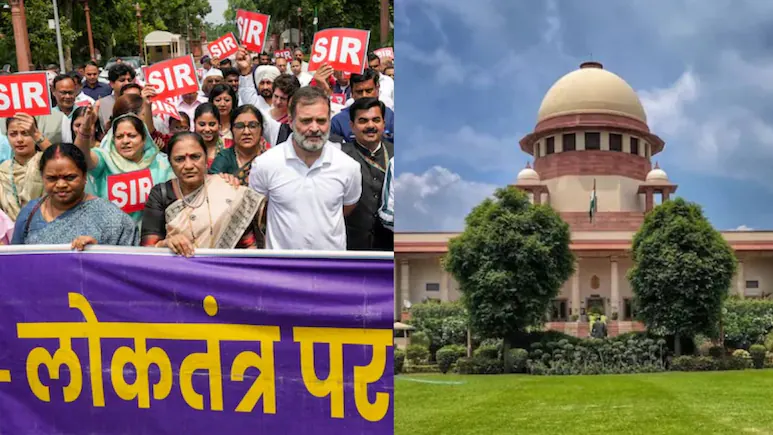Amid growing concerns over the exclusion of voters from the electoral roll in Bihar, the Supreme Court on Tuesday made a crucial observation, urging political parties to “act as NGOs” to safeguard democratic participation. The remarks came as the legal battle surrounding the Election Commission’s ‘special intensive revision’ of the voter list continued to unfold.
The opposition has sought a stay on this revision process ahead of Bihar’s Assembly elections in November. The court, however, advised that instead of relying solely on legal proceedings, political entities should actively verify and assist affected voters on the ground. “Bring 15 people saying they are alive,” remarked Justice Joymalya Bagchi, emphasizing the need for tangible evidence to support the claims of voter exclusion.
According to the Election Commission, over 65 lakh voters have been removed from the draft electoral roll, citing reasons such as death or migration. The court assured that it will intervene if there is verified mass exclusion. “We are overviewing the process as a judicial authority. If there is mass exclusion, we will immediately step in,” the bench stated firmly.
The EC has clarified that those excluded from the list were given a 30-day window to appeal, and encouraged political parties to assist individuals in re-adding their names to the list. Justice Surya Kant supported this stance, stating, “Political parties should act as NGOs at this time.”
The petitioners, represented by senior advocate Kapil Sibal, urged the poll body to include the names of excluded voters in the draft list scheduled for publication on August 1. The court responded by allowing the petitioners to bring any discrepancies in the list to its attention.
Meanwhile, the court reiterated its support for allowing widely accepted documents like Aadhaar and E-PIC (electronic photo identity cards) for voter identity verification. While the Election Commission raised concerns over document forgery, Justice Kant responded, “Any document in the world can be forged… proceed with Aadhaar and E-PIC. There is a presumption of correctness with official documents.”
Despite multiple pleas from opposition leaders, the Supreme Court once again refused to halt the revision process. As of July 25, the Election Commission had reportedly covered 99.8% of registered voters.
This voter list overhaul has become a politically sensitive issue, with opposition parties alleging it targets marginalized communities that typically form their support base. The protests have now spilled into Parliament, intensifying the political narrative around voter suppression.
However, the Election Commission defended its move by noting that the last voter list revision occurred in 2003, making the current update both timely and essential. It also assured that no eligible voter would be left out of the final roll.
As the next court hearing is scheduled for August 12, all eyes are on the legal and political developments that could shape voter participation in the upcoming Bihar Assembly elections.



